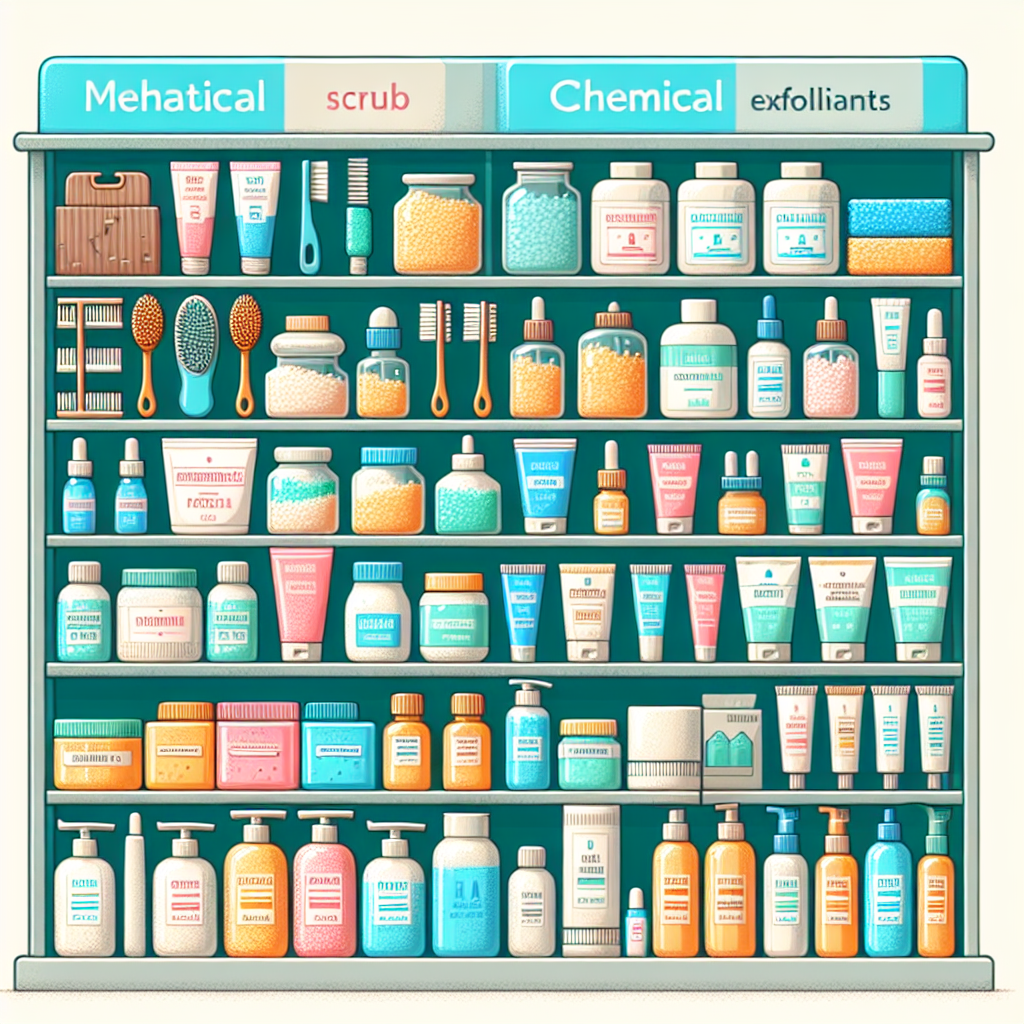Exfoliation is an essential step in a comprehensive skin care routine that often goes overlooked. It involves the removal of dead skin cells from the surface of the skin, which can help to improve the skin’s appearance and health in numerous ways. This process can be achieved through mechanical or chemical means, and understanding the benefits and methods of exfoliation can lead to healthier, more radiant skin.
Understanding Exfoliation
The skin naturally sheds dead cells to make room for new cells approximately every 30 days. However, sometimes these cells don’t shed completely. This can result in dry, flaky patches and clogged pores. Exfoliation helps this natural process along, ensuring that the skin surface is renewed more efficiently.
Types of Exfoliation
There are two main types of exfoliation: mechanical and chemical. Mechanical exfoliation involves physically scrubbing the skin with an abrasive. This could be a scrub with granules, a brush, or a sponge. On the other hand, chemical exfoliation uses acids or enzymes to dissolve and remove dead skin cells without scrubbing. Examples include alpha-hydroxy acids (AHAs), beta-hydroxy acids (BHAs), and fruit enzymes.
Benefits of Regular Exfoliation
Exfoliating has a multitude of benefits for the skin. When dead skin cells are removed, it can help to:
- Prevent acne by keeping pores from becoming clogged with oil and dead skin cells.
- Even out skin tone by removing the dead skin cells that can cause the skin to appear dull.
- Improve the effectiveness of skin care products by allowing them to penetrate more deeply.
- Stimulate collagen synthesis, which can help your skin stay firm and radiant.
For more information on enhancing your skin’s radiance, consider reading Dietary Habits for Enhancing Skin Glow.
How Often Should You Exfoliate?
The frequency of exfoliation can depend on your skin type and the method of exfoliation you’re using. Some people can handle daily exfoliation, while others may only need to exfoliate once or twice a week. Over-exfoliation can strip the skin of its natural oils, leading to irritation and sensitivity.
For those with sensitive skin, it is particularly important to choose the right exfoliation method. You can learn more about this in Choosing the Best Moisturizers for Different Skin Types.
Choosing the Right Exfoliation Method
When selecting an exfoliation method, it’s important to consider your skin type:
- Normal skin can often handle mechanical exfoliation and mild chemical exfoliators.
- Sensitive skin may benefit from gentle, less frequent exfoliation with soft brushes or mild acids.
- Oily skin often works well with more frequent exfoliation and can handle stronger acids like BHAs.
- Dry or combination skin may need less frequent exfoliation and should use products designed to hydrate as well as exfoliate.
For detailed guidance, read more about the Role of Skin Type in Exfoliation.
Best Practices for Safe and Effective Exfoliation
To get the most out of exfoliation without harming your skin, follow these best practices:
- Start Slowly: If you’re new to exfoliating, start with once a week and then gradually increase frequency as your skin adapts.
- Patch Test: Always patch test a new exfoliation product to ensure it doesn’t cause irritation.
- Use Sun Protection: Exfoliation can make your skin more sensitive to the sun. Always use a broad-spectrum sunscreen, like those found in The Importance of Sunscreen for All Skin Types.
- Avoid Over-Exfoliating: Listen to your skin. If it feels dry or becomes irritated, reduce the frequency of exfoliation.
- Consult a Professional: If you’re unsure about how to exfoliate or what products to use, consult a dermatologist or skincare professional.
The Role of Exfoliation in Skin Health
Exfoliation is more than just a way to keep the skin looking smooth—it also plays a vital role in Skin Health. By removing the outermost layer of dead skin cells, exfoliation helps to prevent the build-up that can lead to skin problems like acne and dullness. Moreover, it allows the skin to better absorb other products, making treatments more effective.
External Resources on Exfoliation
For those looking to dive deeper into the science of exfoliation and its benefits, here are several resources to consider:
- Understanding the Exfoliation Process
- The Role of Acids in Skincare
- Collagen Synthesis Stimulation through Exfoliation
- The Importance of Sun Protection
Conclusion
Regular exfoliation plays a critical role in maintaining healthy skin by aiding the natural shedding process, preventing acne, and helping the skin maintain a healthy, youthful glow. By understanding the types of exfoliation and following best practices, you can incorporate this essential step into your skincare routine effectively. Remember to pay attention to your skin’s response and adjust frequency as needed, and always protect your newly exfoliated skin from the sun’s harmful rays. With the right approach, exfoliation can be a game-changer for your skin’s health and appearance.



